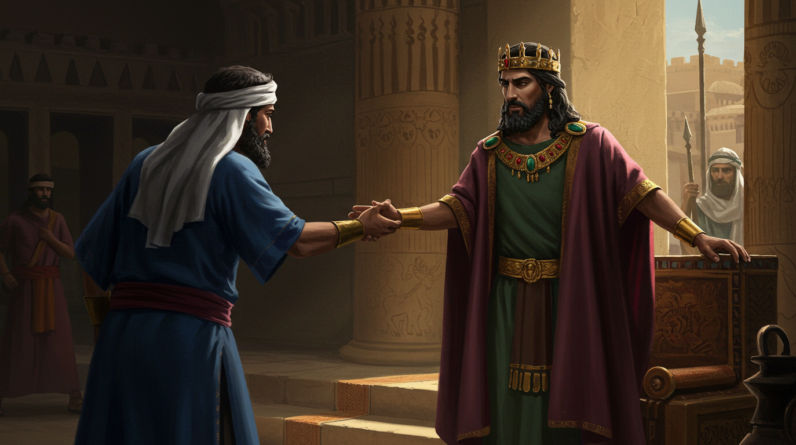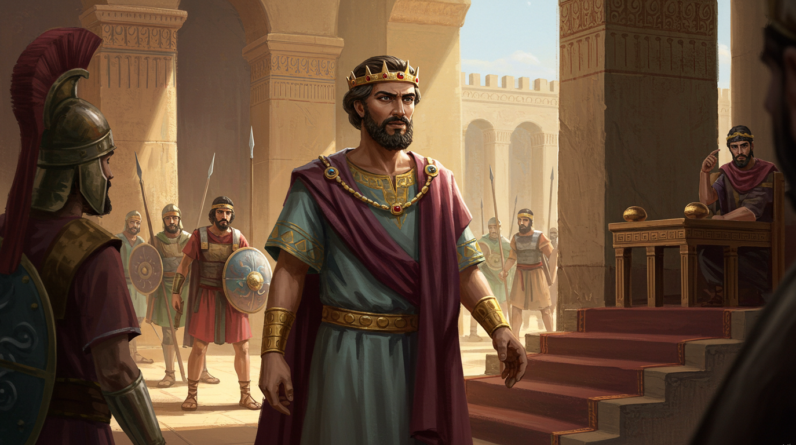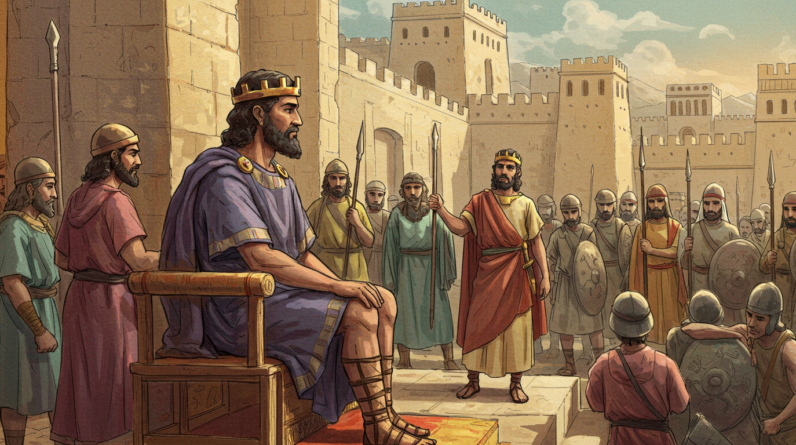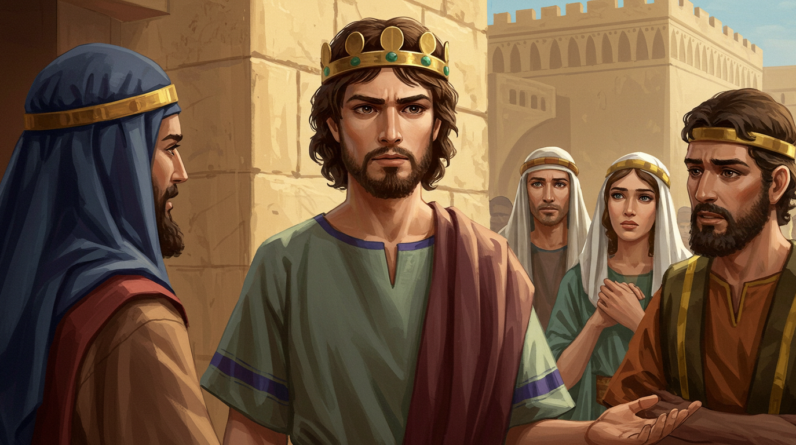Explore the intriguing story of Omri, an often-overlooked leader who unified Israel during a turbulent time. Discover his impact on nation-building and governance.
Omri: The Unifying Leader of Israel
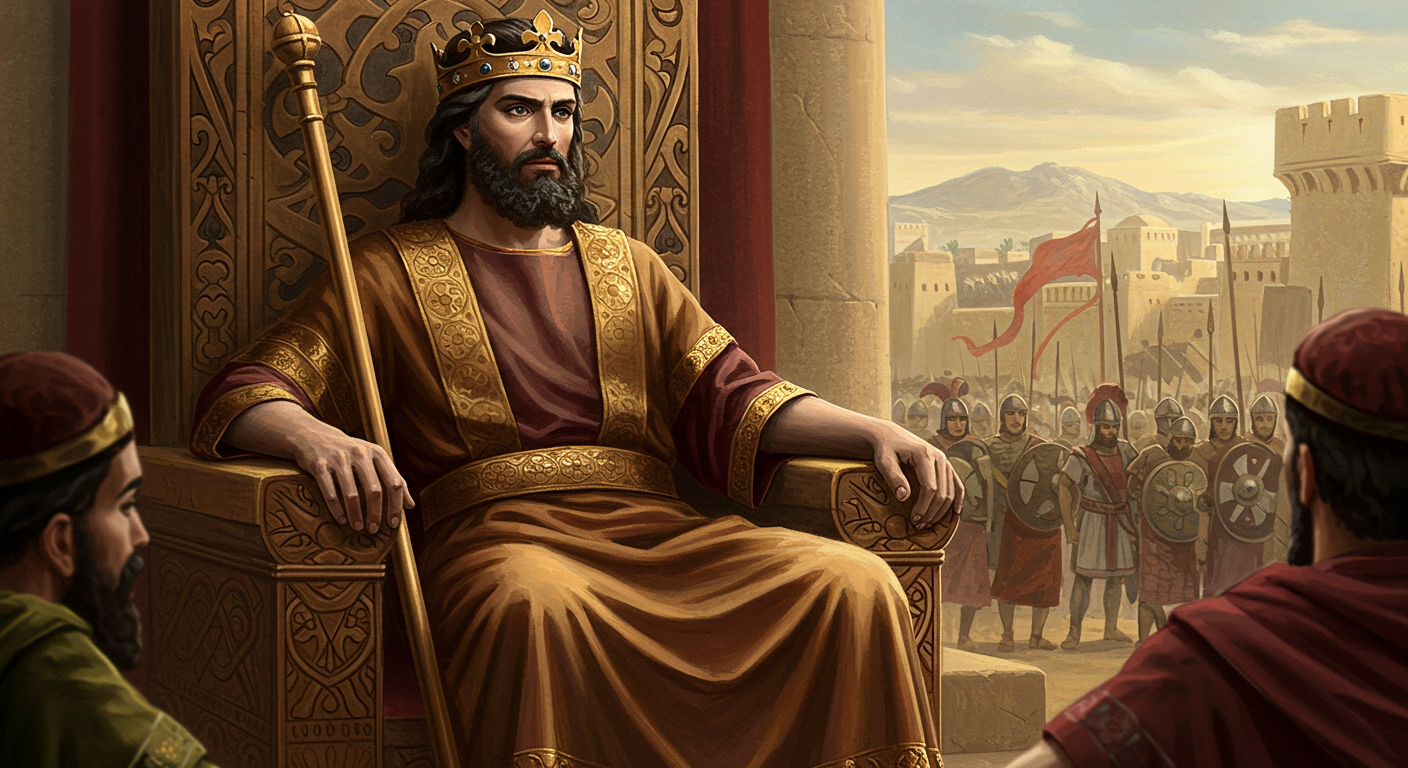
I. Introduction
Imagine a leader who stood at the crossroads of turmoil and unity, an intriguing figure seldom remembered yet pivotal in the transformation of a nation’s identity. Omri, though often overlooked in historical accounts, is just that leader—an enigmatic figure whose influence rippled through Israel’s history.
Brief Overview
Omri was the king of Israel, a ruler who brought stability during a period of intense political fragmentation and social instability. Though his name may not resonate with the gravitas of figures like David or Solomon, Omri’s reign was marked by crucial developments that helped shape the course of Israel’s history. His leadership proved instrumental in unifying the nation and establishing a strong monarchical presence.
Thesis Statement
The story of Omri serves as a compelling exploration of leadership dynamics in a complex period of biblical history. His reign provides valuable insights into nation-building, governance, and the relentless pursuit of unity in the face of adversity.
II. Historical and Cultural Context
Israel in the Time Period
During Omri’s time, Israel was characterized by tribal disunity and external threats. The Northern Kingdom split from Judah and experienced significant internal strife and frequent leadership changes. The geopolitical landscape was fraught with danger as surrounding empires and coalitions sought control over the region.
Setting the Stage
Against this tumultuous backdrop, Omri emerged as a leader whose primary focus was consolidation and fortification. His era demanded a stabilizing figure who could manage internal factions and form strategic alliances to protect Israel’s sovereignty. It was this need for unity and strength that necessitated his rise to power.
III. Biographical Overview
Early Life and Calling
Omri’s origins are not entirely clear, and the Bible does not provide detailed accounts of his early life, leaving historians to speculate on his background. What remains significant is his ascent in a time when military prowess and strategic acumen were highly valued 1 Kings 16:21-28.
Major Milestones and Events
Once on the throne, Omri’s reign was marked by numerous accomplishments:
- Founding of Samaria: Omri established the city of Samaria, a strategic move that fortified the Northern Kingdom’s political center and legacy. His selection of this site demonstrates his foresight in matters of security and administration 1 Kings 16:24.
- International Diplomacy: He cultivated political alliances with neighboring nations, notably through his marriage alliance with Phoenicia. This diplomatic prowess helped to solidify his rule and elevate Israel’s international standing temporarily.
- Cultural and Religious Influences: While Omri’s alliances imbued Israel with new cultural influences, they also introduced religious practices that sparked controversy and debate, such as the worship of Baal, which had long-lasting impacts on Israel’s spiritual life.
IV. Key Biblical Narratives and Passages
Primary Scripture References
Omri’s narrative is primarily captured in the Old Testament book of 1 Kings. The scriptures offer a brief but impactful view of his reign and contributions to Israel.
- 1 Kings 16:21-28 details the political circumstances that facilitated Omri’s rise and his pivotal decisions as king.
Contextual Analysis
These passages underscore Omri’s strategic acumen and highlight his significance beyond mere administrative duties. His foundation of Samaria not only created a centralized capital but also acted as a unifying landmark for the Northern Kingdom, showcasing a balance between political strategy and cultural identity.
V. Leadership Qualities and Challenges
Core Leadership Traits
Omri was a visionary leader whose political savvy and military expertise positioned him as a strong monarch in a time of division. His leadership was marked by decisiveness and the ability to forge crucial alliances. His efforts in revitalizing Israel’s central governance reflect a tenacity to foster unity and resilience.
Challenges and Controversies
Despite his successes, Omri’s reign was not without controversy. His alliances with pagan nations introduced religious practices that many viewed as antithetical to Israel’s covenant with God. These decisions led to tension and eventual moral decay within the kingdom.
VI. Legacy and Impact
Immediate Impact
Omri’s rule steadied a fragmented Israel, strengthening its political infrastructure and expanding its influence through diplomatic marriages and alliances. His establishment of Samaria as a significant capital was a testament to his impact on Israel’s immediate trajectory.
Long-Term Influence
Long after his reign, Omri’s influence endured in profound ways. His lineage continued through his son Ahab, who played a pivotal role in subsequent events of Israel’s history. The kingdom’s religious landscape, however, like many of his initiatives, was double-edged—paving pathways for both unity and controversy.
Modern Relevance
Today’s leaders can draw from Omri’s legacy the importance of visionary governance, diplomatic acumen, and the need for a balanced approach to cultural and religious integration. His story is a reminder of the complex interplay between leadership decisions and their long-term impacts.
VII. Scriptural and Scholarly Analysis
Comparative Analysis
Comparisons of Omri’s account in various Bible translations and scholarly interpretations reveal differing emphases on his achievements and spiritual failings. These variations highlight broader debates on divine versus human agency in biblical narratives.
Theological Implications
Omri’s life poses significant theological questions about the role of leadership within God’s covenantal framework and the tension between political expediency and spiritual fidelity. Scholars often explore how such figures reveal divine patience and the potential for transformation within a broader narrative of redemption.
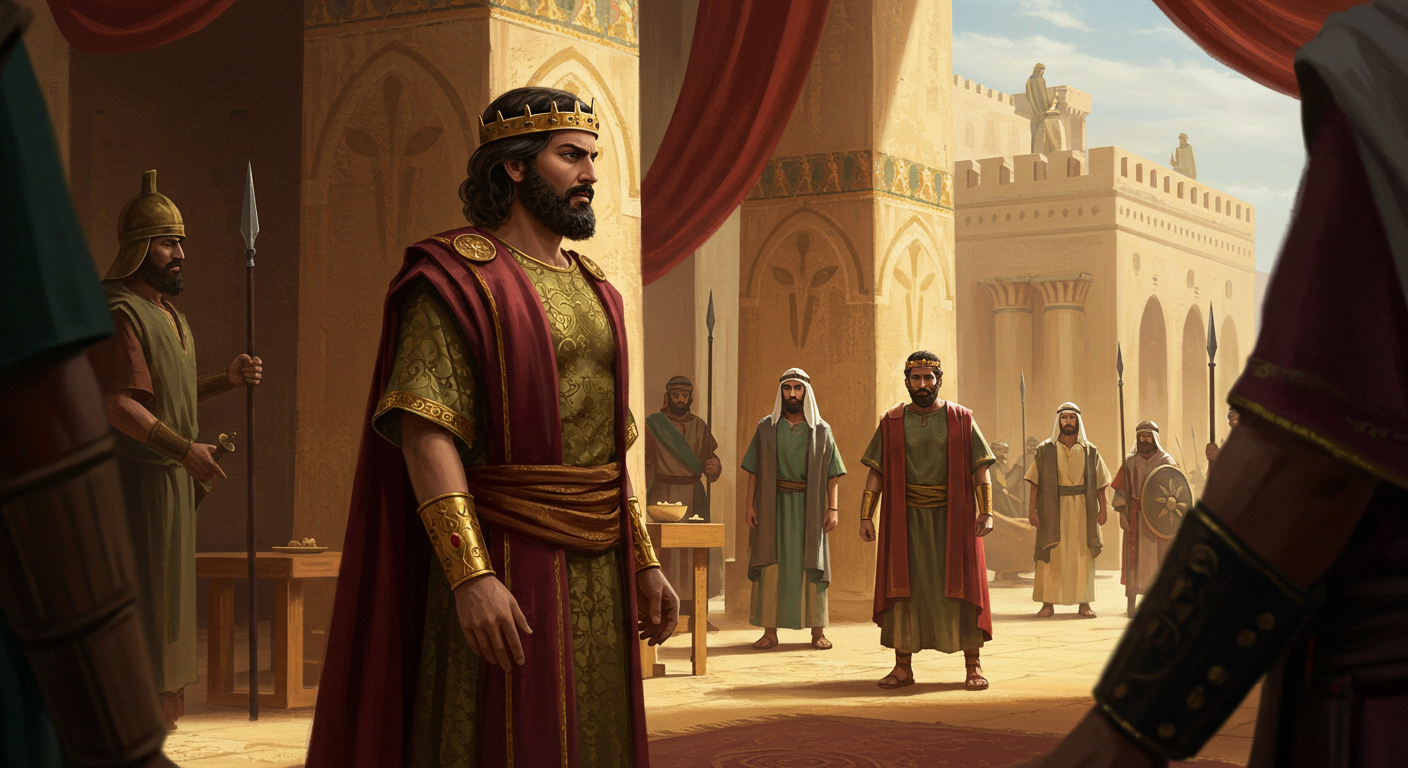
VIII. Conclusion
Summary of Key Points
Omri’s leadership brought both unity and complexity to Israel’s landscape. His strategic foresight and diplomatic initiatives fostered a more centralized and powerful kingdom. Yet, the religious consequences of his reign were formative, setting the stage for ensuing conflicts and cultural shifts.
Final Reflections
The story of Omri invites us to reflect on the intricacies of leadership—where personal ambition, political strategy, and moral responsibility intersect. His narrative stands as both a beacon and a caution for those who navigate the challenges of governance.
Call to Reflection or Action
Consider how Omri’s legacy of unity amid division and strategic governance can inform contemporary leadership practices. Reflect on how his story contributes to our understanding of historical complexity within spiritual narratives.
IX. References and Further Reading
Biblical References
Acknowledgment: All Bible verses referenced in this article were accessed via Bible Gateway (or Bible Hub).




